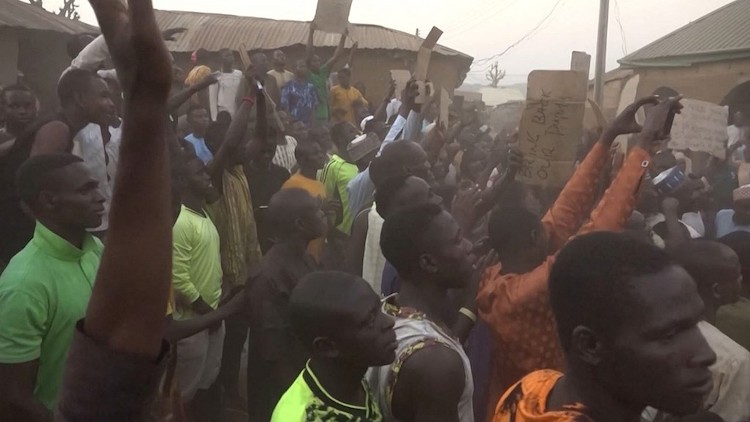By Lisa Vives, Global Information Network
NEW YORK | 11 March 2024 (IDN) — Close to 300 schoolchildren in a quiet agrarian village have disappeared in a new round of kidnappings by armed bandits, despite campaign promises by President Bola Tinubu to tighten security and stop the kidnappings.
Nigerian security forces say they’ve been searching forests and setting up roadblocks in an attempt to find the kidnapped children, but combing the woodland expanses could take weeks, observers say.
Another 15 children were taken following the first raid on March 7. These latest kidnappings are considered the largest mass abduction in the state.
Abubakar, 18, a secondary school pupil, was among the children herded into the forest as they were beaten with horsewhips, but he managed to escape. “We trekked for hours in the scorching heat until we were all exhausted,” Abubakar told the AFP newswire. He said the kidnappers separated girls from boys. “There were more girls than boys.”
Lawan Yaro, a villager whose five grandchildren were among those abducted, said his hopes were fading. He said people were used to the region’s insecurity, “but it has never been in this manner”.
“We were crying, looking for help from the government and God, but it is the gunmen that will decide to bring the children back.”
While a few of these shocking incursions on rather remote schools have received worldwide attention, the actual number of abductions, according to the Wisconsin-based Armed Conflict Location and Event Data Project, is over 3,500 people just in the last year.
This latest abduction has awakened bitter memories of the kidnapping of 276 girls from the town of Chibok in 2014 launched a global #BringBackOurGirls social media campaign bringing attention to the crisis, with the participation of Michele Obama.
In the book “Bring Back Our Girls: The Untold Story of the Global Search for Nigeria’s Missing Schoolgirls”, some 20 of the rescued students have their say in lengthy interviews with foreign journalists based in Africa at the time.
The students tell of brutal beatings, repeated death threats, near-starvation conditions and ongoing coercion to convert to Islam and enter into forced marriages with fighters of Boko Haram.
Reporter Joe Parkinson commented: “Sadly, it now seems the country has become trapped in a difficult cycle of kidnappings for ransom that encourages more kidnappings for ransom. It’s now one of the fastest growing sectors of Nigeria’s economy.”
When the Twitter hashtag “Bring Back Our Girls” caught fire, celebrities, officials, and everyone began asking: “What if they were my daughters? What are the human rights of these girls?” recalled author Drew Hinshaw.
“This was one of the first moments that the power of social media was recognized,” Parkinson said, “and the Bring Back Our Girls campaign spread all over the world.”
“Several of the girls took the risk of keeping secret diaries. One of them, Naomi, kept four diaries tied to her, hidden under her clothes, for three years just so she could show them to the world.”
“(The kidnapped girls) would also sing and recite Bible verses. At first, they just mouthed the words silently or recited a verse while drinking from a cup with their mouth hidden. One of the girls also saved a Bible and they would pass it around copying passages and verses.
“All were offered scholarships to Nigeria’s American University on their release. Some have done well and one of the girls we interviewed is now an A student. But it is a long mental and interpersonal transition.”
After three years in captivity, a $3 million ransom was paid and 103 girls were able to return to their parents. [IDN-InDepthNews]
Photo: Nigerian students shocked by gun shots. Credit: News Vision
IDN is the flagship agency of the Non-profit International Press Syndicate.


